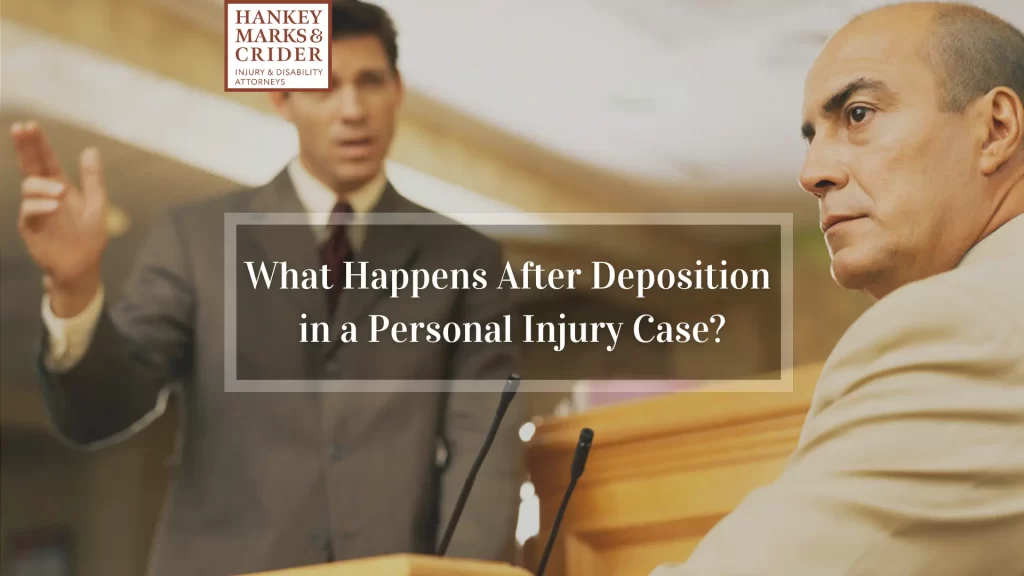
A deposition is a critical aspect of every personal injury lawsuit. The deposition is a part of the discovery phase of a case, so deposition will not occur until you file a lawsuit with the court. Once the deposition occurs, you may settle or go to court to resolve your case.
What Is Deposition?
Once your lawsuit goes to discovery, there will be questions that each side will want to ask the parties and any witnesses. This is what deposition is used for. At a deposition, the deposing party will ask the witness, called the deponent, various questions related to the case. Once the deposition is complete, each side will get a transcript from the court reporter who transcribed the deposition for the record.
How long the deposition process takes depends on how many parties need to be deposed and how difficult it is to schedule the depositions.
After each side has a chance to review the transcript, settlement negotiations will likely start up again. If you cannot reach a satisfactory settlement, you and the other party or parties may choose to go to mediation.
How Long After Deposition is Mediation?
Mediation can occur within a few weeks to a few months after the depositions take place. Mediation timing depends on the complexity of the case, settlement negotiations, and the schedules of each party involved.
What Is Mediation?
Mediation is a form of alternative dispute resolution where the parties meet with a neutral third party, known as a mediator. The mediator assists the parties in their settlement negotiations by presenting possible solutions and keeping them on task. However, the mediator cannot decide on your case or settlement. The mediator’s only ability is to facilitate communication between the parties and make suggestions to help you reach a satisfactory settlement agreement.
Many parties like mediation because it is faster, less expensive, and less emotionally taxing than going to trial. It also allows parties to confidentially discuss their case and get assistance in reaching a mutual settlement agreement.
How Long After Deposition Is Settlement?
If the parties can agree during mediation, the case can be resolved relatively quickly without needing a trial. However, once parties verbally reach an agreement, they must put it in writing in the form of a settlement agreement and sign it. Once the parties sign the deal, it becomes legally binding. At that point, your attorney can provide it to the court to show that settlement has been reached, which will allow your case to be dismissed.
However, if you fail to settle during mediation, your case will continue to trial. Failing to reach an agreement during mediation does not mean you cannot continue negotiating a settlement agreement. Negotiations can continue until the judge or jury reaches a decision in your case.
What’s the Last Chance to Settle?
Once your case goes to trial and the judge enters a judgment, you cannot settle the matter. The ruling is legally binding at that point, and failing to abide by it can lead to severe consequences. Therefore, if you do not want to leave your fate in the hands of a judge and jury, you should work to settle your case before going to trial.
How to Improve Your Chances of Settling
 In addition to working with an experienced personal injury attorney, there are several steps you can take to increase the likelihood of obtaining a settlement. For example, you should:
In addition to working with an experienced personal injury attorney, there are several steps you can take to increase the likelihood of obtaining a settlement. For example, you should:
- Keep detailed records: When you become injured, you should document the accident and your injuries and keep records related to the incident. This can include taking pictures of the incident scene and keeping medical records, police reports, a pain journal, and other information about your injuries.
- Be patient: Settlement negotiations can take time and be stressful. Becoming impatient and being rude to the other side can kill settlement negotiations, increasing the chances that you will have to take the case to trial. Additionally, you should not rush into accepting a settlement offer that is not in your best interest. Being patient is vital to protecting your best interests.
- Be open and honest during mediation: Mediation can be an effective way to reach a settlement agreement, but it only works if everyone is working towards a resolution. Therefore, you must be open and willing to compromise, or mediation is unlikely to be successful.
Contact the Attorneys of Hankey Marks & Crider for Help
The Indianapolis personal injury attorneys of Hankey Marks & Crider have experience negotiating settlements, deposing individuals, mediating, and representing clients at trial. If you have an injury caused by someone else’s wrongdoing and need representation, contact us today at (317) 634-8565 or contact us online.
Related posts

